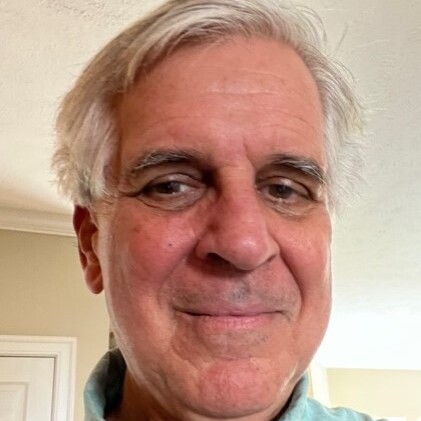
Process and the Japanese Practice of Reflection | Cobb Institute
Does self-examination, in the way described by Kathleen Reeves, imply or involve the consequent nature of God? Does the sense of an inclusive whole, in which all events are felt and understood, assist us in thinking about the give and take of our own lives? What do you think?
I think it does. I think we really understand ourselves only when we imagine our lives in the larger context of an inclusive love in which the give and take of our lives is understood, and maybe even judged, by the standard of love.
First of all, thank you so much for responding! That's the most important thing I have to say. On, then, to less important things:
What prompted my own remarks was this line in Kathleen Reeves' essay: "This is the most difficult question, because it causes us to reflect on our impact on the world and see the reality of this life. What is it like to live with me? To be my mother, husband, child? Whether you see it or not, it's part of the world, or in Whiteheadian terms, it has become of the consequent nature of God. Whatever I do, affects others and becomes part of the world."
In reading her reference to Whitehead's notion of the consequent nature of God, I was reminded of Whitehead's own intuition that this side of God (you might call it the world itself, albeit gathered into a unity of love) is felt or sensed by many as they listen to, in your words, "the standard written on our hearts." And, in this sense, a kind of judge.
What is written is not simply an idea such as "it's good to love" but rather an intuitive recognition that I am nested within a larger context that is more than me, but to which I am somehow accountable. Call it the consequent nature of God; call it the Dharmakaya; call it the web of life; call it the Deep Listening (my favorite).
Of course it's not just the whole of things to which I'm accountable, it's also the eachness of things. What Kathleen points out is that our moral intuition includes a recognition of other people, in all their particularity, of having to "live with me."
The Jewish philosopher Emmanuel Levinas speaks of this recognition as our encounter with, in his words, "the face of the other." He thinks that the encounter with this face, in all its otherness, is what prompts our moral intuitions. A Christian theologian, Mayra Rivera speaks of this encounter as a touch of transcendence: that is, the transcendence of the other to our personal whims and egoistic proclivities.
So....I'm wondering if the standard written on our hearts doesn't include these two intutions, a sense of a larger whole and a sense of the intrinsic value of other living beings in their particularity. Put them together, and I think you have a taste of what Whitehead means by the consequent nature of God. I think parental imagery comes later, although I myself am not that troubled by it. Jesus spoke of God as Abba; Pure Land Buddhists imagine Amida on the analogy of a Grandmother; native Americans sometimes speak of the divine as Corn Mother or Great Father. I think grownups, too, can be daughters and sons of the Holy, without falling into infantile projections. It may even be that this recogniton is itself a sign of maturity, and those in free fall (what a nice way to put it, Doug) best understand it.
But back to what's most important: Thanks!
Thank you for such a rich response in all three areas. This is the first time I've considered "karma" that larger context. It is indeed a judge of sorts, albeit not a final judge. And a flexible judge at that, since it can change. Someone in the open and relational community needs to write an essay called open and relational karma. And about appreciating other people in their particularity, I'm sure that some amont of self-emptying can be really helpful for those among us with secure or overly-strong egos. I worry just a bit about the self-emptying theme when it's presented as a universal key to solving life's ethical problems, because, at least in my experience, many people who suffer from self-hatred or a sense of insignificance, or who are treated as worthless or irrelevant by others, need to say "I am somebody." They (not I) need to enjoy the gift of being 'full of themselves,' At least partially. What role does positive self-affirmation play in your understanding of self-emptying. And, as for the third point, I love it. It is interesting to me that, in the development of Ch'an in China, it was sometimes conjoined with chanting the name of Amida. Seems healthy to me. as is our dialogue.
Hello.
For me, this was a pivotal issue. At the end of a convoluted pathway, it was clear that I was created. Yes, through the karmic scenario of my mom and dad. And through evolution.
But, the path led back to the trinity.




